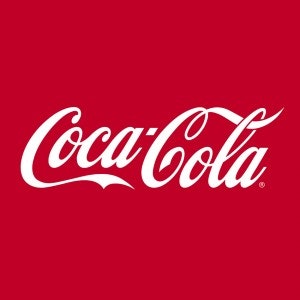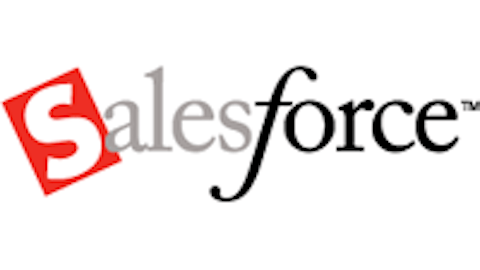
For over 125 years, we’ve been bringing people together. Today, we’d like people to come together on something that concerns all of us — obesity. The long-term health of our families, and the country is at stake. And as the nation’s leading beverage company, we can play an important role.
It raises the question — is Coke’s business, long seen as one of the safest and best in the world — at risk?
Coca-Cola’s empire
The Coca-Cola Company (NYSE:KO) has been one of Berkshire Hathaway Inc. (NYSE:BRK.B)’s largest holdings (in terms of publicly traded companies) for years, and it’s not hard to see why: Coke is the quintessential “Buffett company.”
Coke has an old, established business that isn’t particularly complex. It has a monopoly on its namesake beverage — a beverage that is consumed by millions of people every day. What’s more, as Buffett is quick to point out, a typical customer will consume several servings over the course of the day — each and every day.
The Coca-Cola Company (NYSE:KO) pays a regular dividend and generally trades in line with the market. In short, most money managers would probably identify Coke as one the safest stocks an investor could own, even if it doesn’t offer much in the way of growth.
A secular shift?
Of course, safety is often an illusion. And while it’s far too early to pronounce The Coca-Cola Company (NYSE:KO) a doomed company, there are some cracks beginning to form in its foundation.
As the nation becomes more aware of its obesity epidemic, Americans are increasingly exploring ways to improve their diets. And while diet plans can vary significantly, almost all of them have one thing in common: no soda!
In fact, Coke’s Coming Together ad seems aimed at rebuking these dietary challenges:
But beating obesity will take action by all of us, based on one simple, common sense, fact: all calories count. No matter where they come from. Including Coca-Cola, and everything else with calories. And if you eat and drink more calories than you burn off, you’ll gain weight.
It’s as if The Coca-Cola Company (NYSE:KO) is saying, don’t blame us that you’re fat! Don’t single out our products, all calories are equal!
While that may be the generally accepted belief, there is plenty of scientific debate. And most diets don’t operate under this premise — the Weight Watchers diet, for example, penalizes a follower more severely for drinking a can of Coke than they do for say, eating the equivalent amount of calories in fruit.
It appears that society is in general agreement on soda being a particularly worthless beverage. New York Mayor Bloomberg’s recent attempt to limit the size of soda servings is perfect testament; critics have pointed out the hypocrisy — why not target fast food or candy? Evidently Bloomberg believed soda was the one item everyone could get behind.
To be fair, The Coca-Cola Company (NYSE:KO) has an answer here: Diet Coke and Coke Zero. These zero-calorie offerings are touted by the company as being the obvious answer to the health question, but here they fall short. Most diets discourage diet soda, with some people alleging that it can act as appetite stimulant.
The rise of Whole Foods and going organic
Beyond a changing diet, Coke is threatened by the growing popularity of organic food.
Comedian Zach Galifianakis summed it up fairly well in his appearance on Bill Maher’s HBO show last week, remarking that “food is going to be the new cigarettes.”
Whether or not Galifianakis is exaggerating, it’s fair to say that a growing number of people identify with that sentiment. Clearly, the rise of organic food shows that more and more people are becoming concerned with what they put into their bodies.
Whole Foods Market, Inc. (NASDAQ:WFM) has been one of the great growth stocks over the last few years. Since 2008, shares are up nearly 300%, and the company has been steadily expanding, opening new stores nearly every quarter.
One thing to note is that Whole Foods Market, Inc. (NASDAQ:WFM) doesn’t carry any of Coca-Cola’s key products. Not even Diet Coke. It does carry some of Coke’s juice brands, but the real value behind Coke as a company remains with its namesake products.
Some may be dismissive of the trend, but for those who truly believe we are experiencing a shift toward organic, it’s hard to be bullish on soda companies.
International operations
These shifts — concern about obesity, desire to go organic — are somewhat contained within North America, at least presently. The company’s international operations could therefore act as a backstop, limiting any downside Coke could face in its home market. Yet, according to the company’s most recent 10K, a full 45% of Coke’s operating revenue still comes from North America — Coke isn’t as international as many may believe.
The illusion of safety
I’m not advocating that anyone short Coke’s stock on the basis of the obesity epidemic, or dump Coke in favor of a risky company with a high multiple.
But I do think that real cracks are starting to form in The Coca-Cola Company (NYSE:KO)’s business, and that Coke shares aren’t the safe investment many view them as. If the organic food craze really does start to affect middle America, Coke could soon face a bit of crisis — not one that will put the company under, but one that could surprise Coke’s shareholders.
The article What’s Up with That New Coke Commercial? originally appeared on Fool.com and is written by Salvatore “Sam” Mattera.
Joe Kurtz has no position in any stocks mentioned. The Motley Fool recommends Berkshire Hathaway, Coca-Cola, and Whole Foods Market. The Motley Fool owns shares of Berkshire Hathaway and Whole Foods Market. Salvatore “Sam” is a member of The Motley Fool Blog Network — entries represent the personal opinion of the blogger and are not formally edited.
Copyright © 1995 – 2013 The Motley Fool, LLC. All rights reserved. The Motley Fool has a disclosure policy.
